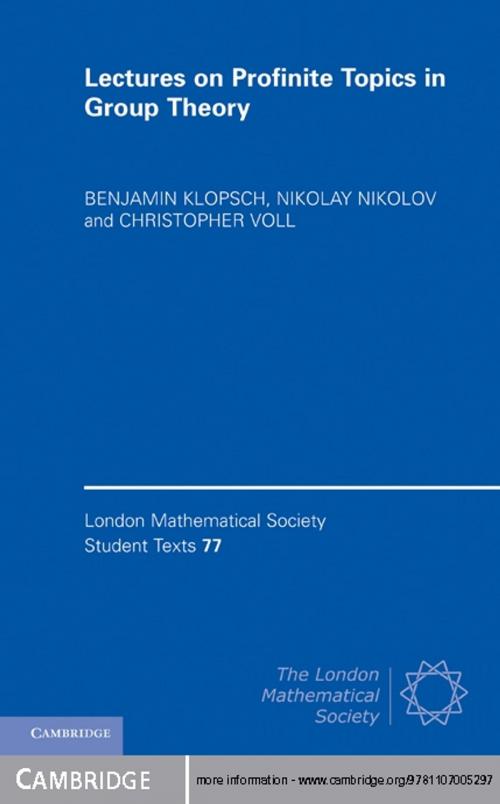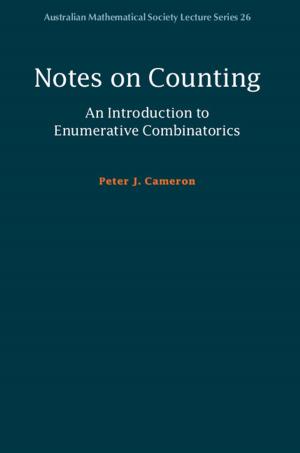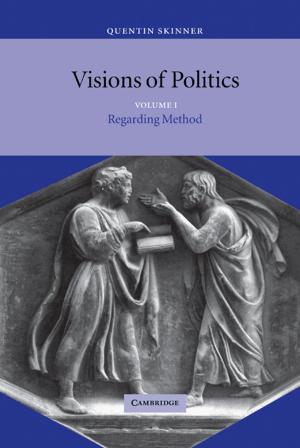Lectures on Profinite Topics in Group Theory
Nonfiction, Science & Nature, Mathematics, Group Theory, Algebra| Author: | Benjamin Klopsch, Nikolay Nikolov, Professor Dr Christopher Voll | ISBN: | 9781139235075 |
| Publisher: | Cambridge University Press | Publication: | February 10, 2011 |
| Imprint: | Cambridge University Press | Language: | English |
| Author: | Benjamin Klopsch, Nikolay Nikolov, Professor Dr Christopher Voll |
| ISBN: | 9781139235075 |
| Publisher: | Cambridge University Press |
| Publication: | February 10, 2011 |
| Imprint: | Cambridge University Press |
| Language: | English |
In this book, three authors introduce readers to strong approximation methods, analytic pro-p groups and zeta functions of groups. Each chapter illustrates connections between infinite group theory, number theory and Lie theory. The first introduces the theory of compact p-adic Lie groups. The second explains how methods from linear algebraic groups can be utilised to study the finite images of linear groups. The final chapter provides an overview of zeta functions associated to groups and rings. Derived from an LMS/EPSRC Short Course for graduate students, this book provides a concise introduction to a very active research area and assumes less prior knowledge than existing monographs or original research articles. Accessible to beginning graduate students in group theory, it will also appeal to researchers interested in infinite group theory and its interface with Lie theory and number theory.
In this book, three authors introduce readers to strong approximation methods, analytic pro-p groups and zeta functions of groups. Each chapter illustrates connections between infinite group theory, number theory and Lie theory. The first introduces the theory of compact p-adic Lie groups. The second explains how methods from linear algebraic groups can be utilised to study the finite images of linear groups. The final chapter provides an overview of zeta functions associated to groups and rings. Derived from an LMS/EPSRC Short Course for graduate students, this book provides a concise introduction to a very active research area and assumes less prior knowledge than existing monographs or original research articles. Accessible to beginning graduate students in group theory, it will also appeal to researchers interested in infinite group theory and its interface with Lie theory and number theory.















